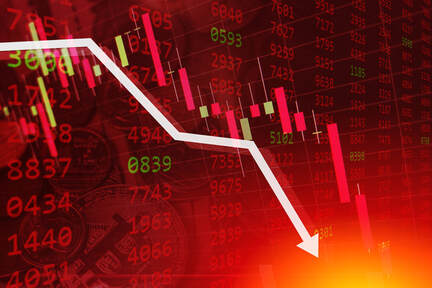 In the wake of the financial crisis—described by many as the worst since the Great Depression of 1930s—consumers wonder about the stability of our country’s banking system, specifically the safety of their local hometown bank. Difficult economic times often increase the likelihood there will be attempts by unscrupulous individuals to gain access to your account information and money. How do you know if your bank and your money are safe? First and foremost, if you are like 98 percent of consumers in the country, you maintain a cash balance of less than $250,000 in any one financial institution. Balances of this amount are insured by the Federal Deposit Insurance Corporation (FDIC), and your bank pays hefty FDIC premiums for this. Since it was established in 1933, the FDIC has insured customer deposits and protected depositors in the unlikely event of failure. The FDIC offers helpful guidance for depositors to ensure all accounts are properly insured at www.fdic.gov. So, there is little cause for concern that your money is safe, be it in a bank large or small.
However, there are important things you can—and should—do to ensure the safety of your money. Keep a written log of your credit and debit cards issued by your financial institution. Keep this log in a safe place in your home or office in case one or more are misplaced or stolen. Notify your financial institution immediately if a card is lost or stolen. Never write your personal identification number (PIN) on the back of your debit card. Regularly check account balances for accuracy and any suspicious activity. While banks and other financial institutions go to great lengths to protect data from identity thieves and others trying to gain access to your account, it is still very important that you regularly monitor all accounts. Beware of any contact from an individual claiming to be from your financial institution who asks for account or personal information. This can be by phone or email, and you should never provide such information. Immediately report this to your bank so it may notify the proper law enforcement authorities. If you are elderly, be extra aware of scam artists. Be it a promise to do home repairs that requires a large down payment—and the work is never done—or an investment opportunity that guarantees a high return, scam artists often target elders. Keep in mind that if something seems too good to be true, it is usually just that. Secure mobile phones and other devices that store sensitive account information. Protect these devices as you would your wallet or purse, and activate the security code and lock features. Be cautious when using automated teller machines. Use only well-lit machines that are in public places, and check your surroundings before proceeding with any transaction. Your financial institution has a vested interest in protecting you and your money, and your local banker can be an excellent resource if you ever have questions or concerns about the safety of your money. This information is provided with the understanding that the association is not engaged in rendering specific legal, accounting, or other professional services. If specific expert assistance is required, the services of a competent, professional person should be sought. Provided as a public service by the Pennsylvania Association of Community Bankers. Comments are closed.
|
AuthorWrite something about yourself. No need to be fancy, just an overview. Archives
December 2017
Categories
All
|
|
Pennsylvania Association of Community Bankers
800 N. 3rd Street, Suite 304 Harrisburg, PA 17102 Phone: (717) 231-7447 [email protected] | sitemap (C) All Rights Reserved Our Privacy Policy Our Copyright Policy |
"To empower community banks to make positive impact within the communities they serve."
|
